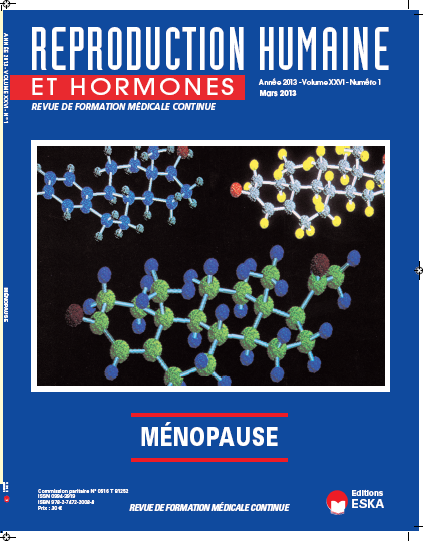End the study dictatorship Women’s Health Initiative (WHI)
DOI:
https://doi.org/10.54695/rhh.26.01.4258Keywords:
Hormone replacement therapy, Hormone treatment for the menopause, Breast cancer, Cardio-vascular accidents, Cerebrovascular accidents, Vein thrombosis, Estrogen, Progesterone.Abstract
Putting an end to the dictatorship of the
women’s health initiative (whi) study
Since the publication in 2002 of the first results of
the Women’s Health Initiative (WHI) study showing
an increase in the risk of breast cancer and vascular
accidents, at least in the estrogen + progesterone
arm, a number of publications, some of which
coming from the WHI study itself, have made it
possible to clarify the situation.
Hormone replacement therapy (HRT) does not
increase the cardio-vascular risk when it is prescribed before the age of 60 or not far from the menopause. It might even have a protective effect.
As far as the risk of breast cancer is concerned, the
harmful role of some progestogens, including
medroxyprogesterone acetate used in the WHI
study, is being more and more highlighted.
There is a growing consensus for prescribing reduced posologies, preferring percutaneous estrogen in
women at risk of a vascular accident, in particular thrombosis, and for preferring progesterone or
dydrogesterone when a progestogen is mandatory.
Finally, there is no limit to the length of time HRT
can last provided that the patients are informed and
periodic assessments are carried out.







